Fall 2022
Supporting Mental Health in Your Students
with Brad Stewart and Yvonne Giovanis
November 15, 2022 from 4:00 PM – 6:00 PM

Yvonne Giovanis

Brad Stewart
The status of students’ mental health is a growing concern for universities across the nation. From the National Collegiate Health Assessment, three of the top five impediments to academic performance as reported by TCU students are stress, anxiety, and depression.
Faculty play a key role in recognizing the warning signs of mental health and facilitating referrals. Question, Persuade, Refer (QPR) is a nationally recognized workshop which trains individuals to become “gatekeepers.” According to the Surgeon General’s National Strategy for Suicide Prevention (2001), a gatekeeper is someone in a position to recognize a crisis and the warning signs that someone may be contemplating suicide.
This workshop will provide faculty with the tools to identify warning signs and risk factors for suicide and poor mental health. We will also cover how to ask a student if they are having thoughts of suicide, and how to refer these students to a variety of campus resources for help. We will finish with a deeper discussion for strategies on how faculty can support the mental health of their students.
Tools for Teaching Research Methods
with Robyn Reid
November 2, 2022 from 2:00 PM – 3:00 PM
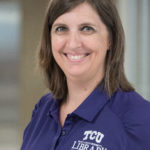
Robyn Reid
In this workshop, participants will learn about tools available through the TCU Library that can be used for teaching research methods such as Sage Research Methods, the Inter-University Consortium for Political and Social Research (ICPSR), and Data-Planet. The session will focus on how faculty can use these tools to help students learn about methodologies, quantitative and qualitative analysis, and to find datasets for research and practice.
Exploring Open Educational Resources (OER) for Equity and Access
with Jeff Bond, Jason Manriquez, and Travis Kramer
November 1, 2022 from 4:00 PM – 6:00 PM
Would you like to incorporate open educational resources (OER) into your course, but aren’t sure where to start? Are you curious about leveraging Follett Discover to provide OER and other engaging digital content material for your students?
This workshop will explore how you can adopt Follett Discover along with other OER resource content platforms in lieu of or in addition to traditional textbooks benefiting students and instructors. You will leave with a set of practical tools and strategies for approaching your OER journey, as well as a better understanding of the support available for you at TCU.
By the end of this workshop, you will be able to:
- Provide a working definition of an Open Education Resource
- Explain the benefits of using Open Education Resources and Follet Discover
- Locate and Evaluate an Open Educational Resource in your discipline for use in TCU Online

Travis Kramer

Jason Manriquez

Jeff Bond
Designing Rubrics for Writing Assignments: Best Practices
with Cheryl Slocumb
October 19, 2022 from 1:00 PM – 2:00 PM

Cheryl Slocumb
Writing assignments are popular activities by which educators determine student comprehension and progress within a course. And rubrics have become an increasingly popular (and expected) method for assessing student writing. However, designing rubrics for writing assignments can be a daunting task for those who have little experience doing so. Luckily, with a bit of guidance and reflection upon desired assignment outcomes, educators can successfully craft a writing assignment rubric that serves as a customizable and time saving means of assessing student writing. Additionally, a well-designed and detailed rubric can function as a teaching tool that helps students become better writers as they navigate the intricacies of the writing process while encouraging reflection before turning in a writing assignment.
This workshop will focus on best practices for creating effective and detailed rubrics for writing assignments. Participants will have an opportunity to view existing rubrics and begin to draft plans for their own.
By the end of this workshop, participants will be able to:
- Identify criteria relevant to evaluation of writing assignments
- Create criteria that align with desired assignment outcomes
- Design a rubric adaptable to a variety of writing activities
Accommodating Student Learning Needs with Stacy Mason and Travis Kramer
September 27, 2022 from 4:00 PM – 6:00 PM
September 28, 2022 from 2:00 PM – 4:00 PM

Travis Kramer

Stacy Mason
TCU boasts a talented and diverse student body, with many individual learners who have individualized needs. And with these needs, students sometimes require special accommodations, whether for a specific learning disability, physical limitation, or an unusually demanding schedule, such as with student athletes who are frequently away from campus.
This workshop will focus on the most common accommodations requested of TCU faculty (extra time, extended due dates, note-taking, accessible content, video captioning, and redundant learning materials). With these considerations in mind, we will also demonstrate how to leverage and customize TCU Online to address these specific needs.
By the end of this workshop, you will be able to:
- Identify the common accommodations as listed by the Office of Access and Accommodation
- Locate the Accommodations tool in Classlist to provide extended time for Quizzes/Exams
- Design a Special Access scenario in the Assignments and Quizzes to adjust or extend due dates
- Create captions for TCU Online Video Note videos and Panopto videos
- Create accessible Word, Powerpoint, PDF and HTML content using built in tools for use with ReadSpeaker
Getting to Know the Fab Lab
with Brad Trussell
September 26, 2022 from 3:00 PM – 4:30 PM
TCU’s digital fabrication laboratory—The Fab Lab—is a space designed to inspire creativity. Located on the first floor of the TCU Library, the Fab Lab offers a variety of services and equipment to TCU students, staff, and faculty. Equipment available in the Fab Lab includes multiple 3D printers, a high definition 3D scanner, a large scale plotter, and a laser cutter/engraver.
This workshop will provide a brief overview of the lab. Participants will then have an opportunity to explore the equipment. Fab Lab staff will be available to discuss ideas for how the equipment might be utilized for course materials or classroom assignments, as well as answer any questions you may have.
Critical Service Learning as a High Impact Pedagogy and DEI Tool
with Dr. Rosangela Boyd
September 23, 2022 from 10:00 AM – 11:30 AM

Rosangela Boyd
Service-learning aims at developing service experiences for students that enhance learning while addressing community needs through reciprocal campus-community partnerships. While some educators have focused on discipline-specific learning objectives, others have embraced a social change orientation, by promoting social awareness and encouraging social responsibility among students in addressing key community concerns. This shift in focus, known as “critical service-learning” brings implications related to the developments and sustainability of campus-community partnerships, as well as to classroom dynamics.
This presentation will be anchored in this paradigm shift towards a critical approach to service-learning, discussing implications of adopting a critical service-learning approach, reviewing the role of all stakeholders (faculty, students and community members) throughout the various phases of developing and sustaining reciprocal service-learning partnerships. This interactive and reflective presentation will use examples of existing partnerships to discuss how challenges have emerged and have been addressed during planning, implementation and follow up.
As a result of attending this session, participants will be able to:
- Compare and contrast traditional and critical service-learning approaches
- Identify barriers and articulate strategies to applying critical service-learning principles in planning, implementing, and evaluating campus-community collaborative projects
- Highlight student learning outcomes connected to critical service-learning
- Recognize the benefits of place-based community engagement to sustain partnerships
- Discuss how session contents and examples can be adapted to respective disciplines
Bringing TCU to the Community: Opportunities for Non-Credit Engagement
with Julie Lovett
September 21, 2022 from 2:00 PM – 3:00 PM

Julie Lovett
Connecting TCU to the greater community is an important part of our mission and can be accomplished in multiple ways—artistic showcases, athletics, conferences, and more. Opportunities also exist through TCU’s Office of Extended Education—leading non-credit evening courses, being a featured Faculty Favorite Lecture speaker, volunteering to teach a TCU Silver Frogs program, and more. The paid and volunteer opportunities administered through the Office of Extended Education serve to further develop professional and enrichment connections between our campus and the community.
Many opportunities are available to TCU faculty and departments to engage with the local community through partnership with the Office of Extended Education. Departments wanting to do outreach and generate departmental revenue can do so through a variety of programs and activities, such as conferences and institutes. Extended Education takes care of the “back office” administrative details, leaving the program development and delivery to the experts—the faculty.
In this workshop, participants will:
- Explore the value of community outreach and engagement
- Identify activities and programs available to individual faculty and departments
- Discuss revenue-generating models for departments
- Review administrative details and timelines for implementation
Each year, thousands of community members take part in Extended Education opportunities here at TCU. You can be a part of that outreach!
Spring 2022
Supporting Mental Health in Your Students
with Brad Stewart and Yvonne Giovanis
March 2, 2022 from 3:00 PM – 5:00 PM
March 22, 2022 from 1:30 PM – 3:30 PM

Yvonne Giovanis

Brad Stewart
The status of students’ mental health is a growing concern for universities across the nation. From the National Collegiate Health Assessment, three of the top five impediments to academic performance as reported by TCU students are stress, anxiety, and depression.
Faculty play a key role in recognizing the warning signs of mental health and facilitating referrals. Question, Persuade, Refer (QPR) is a nationally recognized workshop which trains individuals to become “gatekeepers.” According to the Surgeon General’s National Strategy for Suicide Prevention (2001), a gatekeeper is someone in a position to recognize a crisis and the warning signs that someone may be contemplating suicide.
This workshop will provide faculty with the tools to identify warning signs and risk factors for suicide and poor mental health. We will also cover how to ask a student if they are having thoughts of suicide, and how to refer these students to a variety of campus resources for help. We will finish with a deeper discussion for strategies on how faculty can support the mental health of their students.
Exploring Open Educational Resources (OER) for Equity and Access
with Jeff Bond, Jason Manriquez, Jason Smith, and Travis Kramer
March 15, 2022 from 1:00 PM – 2:00 PM
Would you like to incorporate open educational resources (OER) into your course, but aren’t sure where to start? Are you curious about leveraging Follett Discover to provide OER and other engaging digital content material for your students?
This workshop will explore how you can adopt Follett Discover along with other OER resource content platforms in lieu of or in addition to traditional textbooks benefiting students and instructors. You will leave with a set of practical tools and strategies for approaching your OER journey, as well as a better understanding of the support available for you at TCU.
By the end of this workshop, you will be able to:
- Provide a working definition of an Open Education Resource
- Explain the benefits of using Open Education Resources and Follet Discover
- Locate and Evaluate an Open Educational Resource in your discipline for use in TCU Online

Travis Kramer

Jason Smith

Jason Manriquez

Jeff Bond
Laughter and the Serious Teacher: Using Humor Judiciously in the Classroom
with Dr. Steve Sherwood
March 2, 2022 from 11:00 AM – 12:00 PM

Steve Sherwood
The goal of this workshop is to offer guidelines on how to avoid many of the pitfalls of humor while adding positive uses to instructors’ teaching tools. The workshop will include a brief review of humor theories, practical uses of humor, and “rhetorical proprieties” that once guided classical figures, such as Cicero, in their use of wit. Such principles may help contemporary instructors decide if or when to resort to humor.
Participants will have the opportunity to discuss situations in which their use of humor in teaching situations succeeded, fell flat, or even wounded a student and, as a group, try to figure out why.
The workshop will conclude with a discussion of the potential pitfalls and benefits of humor in order to create a set of guidelines to help teachers use humor in positive and productive ways such as building rapport with students, rising above embarrassing moments, softening criticism, and stimulating creative thinking.
Bystander to Upstander: Transforming Culture
with Dr. Nada Elias-Lambert
February 23, 2022 from 9:00 AM – 11:00 AM
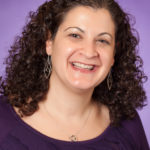
Nada Elias-Lambert
The Bystander to Upstander: Transforming Culture workshop, created and facilitated by Nada Elias-Lambert, empowers participants to transform from bystanders to upstanders to build communities that support difference and unify against intolerance. An upstander is an individual who chooses to take positive action in the face of injustice or intolerance.
Developed through an intersectional lens, the workshop provides participants with the knowledge to identify moments of injustice such as sexual violence, racism, and sexism. Participants will also learn and apply trauma-informed upstander skills to impact positive change and promote a culture of nonviolence. This interactive workshop allows each participant to practice upstander strategies that match their personality and comfort level.
By the end of this workshop, participants will be able to:
- Identify moments of injustice or intolerance
- Gain confidence in addressing moments of injustice or intolerance
- Use engagement and conversational tactics to de-escalate harmful situations
- Take the most appropriate and effective action to stand up to injustice or intolerance
The Bystander to Upstander: Transforming Culture workshop is 2 hours long. The first hour of the program focuses on providing participants with the knowledge to identify and address moments of injustice. The second hour of the program provides participants an opportunity to apply trauma-informed upstander skills with real-life scenarios.
Learn more about the Bystander to Upstander workshops.
Accommodating Student Learning Needs
with Stacy Mason and Travis Kramer
January 25, 2022 from 1:00 PM – 2:00 PM
February 11, 2022 from 9:00 AM – 10:00 AM
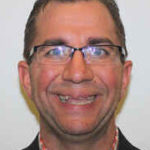
Travis Kramer

Stacy Mason
TCU boasts a talented and diverse student body, with many individual learners who have individualized needs. And with these needs, students sometimes require special accommodations, whether for a specific learning disability, physical limitation, or an unusually demanding schedule, such as with student athletes who are frequently away from campus.
This workshop will focus on the most common accommodations requested of TCU faculty (extra time, extended due dates, note-taking, accessible content, video captioning, and redundant learning materials). With these considerations in mind, we will also demonstrate how to leverage and customize TCU Online to address these specific needs.
By the end of this workshop, you will be able to:
- Identify the common accommodations as listed by the Office of Access and Accommodation
- Locate the Accommodations tool in Classlist to provide extended time for Quizzes/Exams
- Design a Special Access scenario in the Assignments and Quizzes to adjust or extend due dates
- Create captions for TCU Online Video Note videos and Panopto videos
- Create accessible Word, Powerpoint, PDF and HTML content using built in tools for use with ReadSpeaker
Critical Service Learning as a High Impact Pedagogy and DEI Tool
with Rosangela Boyd
January 26, 2022 from 1:30 PM – 3:30 PM

Rosangela Boyd
Service-learning aims at developing service experiences for students that enhance learning while addressing community needs through reciprocal campus-community partnerships. While some educators have focused on discipline-specific learning objectives, others have embraced a social change orientation, by promoting social awareness and encouraging social responsibility among students in addressing key community concerns. This shift in focus, known as “critical service-learning” brings implications related to the developments and sustainability of campus-community partnerships, as well as to classroom dynamics.
This presentation will be anchored in this paradigm shift towards a critical approach to service-learning, discussing implications of adopting a critical service-learning approach, reviewing the role of all stakeholders (faculty, students and community members) throughout the various phases of developing and sustaining reciprocal service-learning partnerships. This interactive and reflective presentation will use examples of existing partnerships to discuss how challenges have emerged and have been addressed during planning, implementation and follow up.
As a result of attending this session, participants will be able to:
- Compare and contrast traditional and critical service-learning approaches
- Identify barriers and articulate strategies to applying critical service-learning principles in planning, implementing and evaluating campus-community collaborative projects
- Discuss how session contents and examples can be adapted to respective disciplines
Teaching in the Core Curriculum: An Overview
with Theresa Gaul, Jacque Lambiase, and Jan Quesada
January 24, 2022 from 1:00 PM – 2:00 PM
Designed for faculty members who are new to TCU, need a refresher on Core basics, or are interested in proposing a Core course, this workshop presents an overview of the TCU Core Curriculum. Topics include how to propose a course for a Core area, finding what you need on the new Core Curriculum website, incorporating writing instruction in WEM courses, and handling common advising questions.
In addition, time will be given to hearing your questions, concerns, and vision for the TCU Core Curriculum going forward.
By the end of this workshop, you will be able to:
- Distinguish among areas and categories of the Core Curriculum
- Describe the steps for proposing a new course
- Navigate the Core Curriculum website
- Identify strategies for incorporating writing in WEM courses
- Locate answers to common advising questions

Jan Quesada

Jacque Lambiase

Theresa Gaul
Fall 2021
High Impact Community-Engaged Learning Practices
with Lynn Donahue
November 19, 2021 from 1:30 PM – 2:30 PM
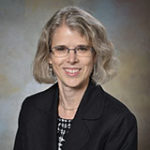
Lynn Donahue
This webinar will focus on three practices that facilitate achievement of high impact community-engaged learning (service-learning): Reciprocity, Context and Culture, and Communication.
Participants will develop a deeper understanding of cultivating reciprocal relationships between faculty and community partners, educating students about context, and using a project management approach for effective communication. There will be opportunities to pair each practice with the processes needed for implementation. Examples will be drawn from Community-Engaged Learning courses and a Core course called Resilient Children, Engaged Communities.
Honoring Diverse Ways of Knowing: Decentering Dominant Narratives in Service-Learning Utilizing Community Cultural Wealth with Cathy Avila-Linn and Kristina Barger
October 29, 2021 from 3:00 PM – 4:30 PM
Using participatory facilitation methods, this interactive webinar will introduce Dr. Tara J. Yosso’s Community Cultural Wealth Model as a framework for discovering and embracing the unique assets, knowledge and talents of students of color. Together, we will discuss the importance of decentering predominantly white approaches for teaching and learning and explore how we can transform our practice in ways that welcome students’ whole selves and actively honor diverse ways of knowing, being, and learning. Facilitators will share examples of how faculty are incorporating the model and designing asset-based educational experiences.
Participants will be invited to:
- Reflect on their own cultural identities and educational experiences
- Deepen their knowledge of Yosso’s Community Cultural Wealth
- Brainstorm with a small group, focused on ways to incorporate practices and policies that actively promote inclusive, asset-based teaching and learning experiences
- Build their capacity to design equitable and inclusive students’ educational experiences
Bystander to Upstander: Transforming Culture
with Nada Elias-Lambert
October 25, 2021 from 1:00 PM – 3:00 PM

Nada Elias-Lambert
The Bystander to Upstander: Transforming Culture workshop, created and facilitated by Nada Elias-Lambert, empowers participants to transform from bystanders to upstanders to build communities that support difference and unify against intolerance. An upstander is an individual who chooses to take positive action in the face of injustice or intolerance.
Developed through an intersectional lens, the workshop provides participants with the knowledge to identify moments of injustice such as sexual violence, racism, and sexism. Participants will also learn and apply trauma-informed upstander skills to impact positive change and promote a culture of nonviolence. This interactive workshop allows each participant to practice upstander strategies that match their personality and comfort level.
By the end of this workshop, participants will be able to:
- Identify moments of injustice or intolerance
- Gain confidence in addressing moments of injustice or intolerance
- Use engagement and conversational tactics to de-escalate harmful situations
- Take the most appropriate and effective action to stand up to injustice or intolerance
The Bystander to Upstander: Transforming Culture workshop is 2 hours long. The first hour of the program focuses on providing participants with the knowledge to identify and address moments of injustice. The second hour of the program provides participants an opportunity to apply trauma-informed upstander skills with real-life scenarios.
Learn more about the Bystander to Upstander workshops.
Supporting Mental Health in Your Students
with Brad Stewart and Yvonne Giovanis
October 20, 2021 from 2:00 PM – 4:00 PM

Yvonne Giovanis

Brad Stewart
The status of students’ mental health is a growing concern for universities across the nation. From the National Collegiate Health Assessment, three of the top five impediments to academic performance as reported by TCU students are stress, anxiety, and depression.
Faculty play a key role in recognizing the warning signs of mental health and facilitating referrals. Question, Persuade, Refer (QPR) is a nationally recognized workshop which trains individuals to become “gatekeepers.” According to the Surgeon General’s National Strategy for Suicide Prevention (2001), a gatekeeper is someone in a position to recognize a crisis and the warning signs that someone may be contemplating suicide.
This workshop will provide faculty with the tools to identify warning signs and risk factors for suicide and poor mental health. We will also cover how to ask a student if they are having thoughts of suicide, and how to refer these students to a variety of campus resources for help. We will finish with a deeper discussion for strategies on how faculty can support the mental health of their students.
Exploring Open Educational Resources (OER) for Equity and Access
with Jeff Bond, Jason Manriquez, Jason Smith, and Travis Kramer
October 5, 2021 from 1:00 PM – 2:30 PM
November 17, 2021 from 1:00 PM – 2:30 PM
Would you like to incorporate open educational resources (OER) into your course, but aren’t sure where to start? Are you curious about leveraging Follett Discover to provide OER and other engaging digital content material for your students?
This workshop will explore how you can adopt Follett Discover along with other OER resource content platforms in lieu of or in addition to traditional textbooks benefiting students and instructors. You will leave with a set of practical tools and strategies for approaching your OER journey, as well as a better understanding of the support available for you at TCU.
By the end of this workshop, you will be able to:
- Provide a working definition of an Open Education Resource
- Explain the benefits of using Open Education Resources and Follet Discover
- Locate and Evaluate an Open Educational Resource in your discipline for use in TCU Online

Travis Kramer

Jason Smith

Jason Manriquez

Jeff Bond
Pronoun Fluency: Creating Safer Spaces Through Inclusive Language
with Lindsay Knight and Nino Testa
November 3. 2021 from 1:00 PM – 3:00 PM
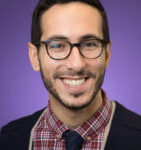
Nino Testa

Lindsay Knight
Do you have questions about non-binary pronouns? Do you keep calling someone in your life by the wrong pronouns? Are you unsure how to talk to new people without gendering them?
This workshop is designed to give faculty and staff an opportunity to develop familiarity with pronoun usage and strategies of address. It includes practical, hands-on opportunities to improve your knowledge or usage of pronouns, especially if you struggle to get other people’s pronouns right. We will also share best practices for inclusion of this information into syllabi and classroom settings. All genders and identities are welcome.
Taking the Guesswork Out of Writing Better Multiple Choice Tests
with Patti Gregg
September 21, 2021 from 9:30 AM – 11:30 AM
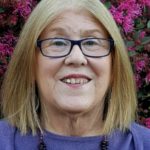
Patti Gregg
Multiple choice tests are
- a) efficient measures of student learning
- b) a necessary evil
- c) better for some subjects than others
- d) better for some students than others
- e) all of the above
- f) none of the above
This workshop will discuss the ways in which multiple choice tests can be used most effectively. We will examine the potential impacts of question wording on students with diverse backgrounds, abilities and language fluency. Through prepared examples from a range of disciplines, we will explore ways to design or redesign multiple choice test items in order to assess both content knowledge and higher order reasoning skills.
Feel free to bring examples of test items you would be willing to share and/or specific knowledge or skills you find challenging to assess with multiple choice instruments.
By the end of this workshop, you will be able to:
- Match your test items to your learning outcomes
- Create effective question stems
- Create answer options that effectively measure student learning, including higher order thinking skills
- Locate resources for further analysis of your test items
Accommodating Student Learning Needs
with Stacy Mason and Travis Kramer
September 7, 2021 from 1:00 PM – 2:30 PM
September 22, 2021 from 1:00 PM – 2:30 PM
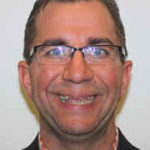
Travis Kramer

Stacy Mason
TCU boasts a talented and diverse student body, with many individual learners who have individualized needs. And with these needs, students sometimes require special accommodations, whether for a specific learning disability, physical limitation, or an unusually demanding schedule, such as with student athletes who are frequently away from campus.
This workshop will focus on the most common accommodations requested of TCU faculty (extra time, extended due dates, note-taking, accessible content, video captioning, and redundant learning materials). With these considerations in mind, we will also demonstrate how to leverage and customize TCU Online to address these specific needs.
By the end of this workshop, you will be able to:
- Identify the common accommodations as listed by the Office of Access and Accommodation
- Locate the Accommodations tool in Classlist to provide extended time for Quizzes/Exams
- Design a Special Access scenario in the Assignments and Quizzes to adjust or extend due dates
- Create captions for TCU Online Video Note videos and Panopto videos
- Create accessible Word, Powerpoint, PDF and HTML content using built in tools for use with ReadSpeaker